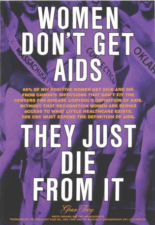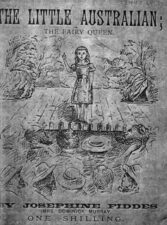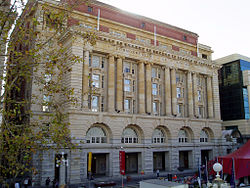
Source: Wikipedia, Public Domain
Sue Neacy
WHN Admin.
In 1972 Australia voted in a Federal Election, winning enough seats to wrest government from the incumbents of twenty three years. Gough Whitlam, leader of the Australian Labor Party (ALP), became Prime Ministership. One of the seats that was not won, and not ever likely to be won by Labor, was Curtin (ironically named for John Curtin a former Labor Prime Minister). Continuing her political commitment and activism Sue Neacy was the ALP candidate. Her story could be that of many who stand for unwinnable seats, fortunately gradually becoming less likely for a woman as we gain selection for safer seats.
More Unfinished Business
When I was eighteen, and (so, it seemed) the only person in Australia who wanted an eighteen-year- old vote I went to my first political meeting in Forrest Place, Perth Western Australia, in the run up to the last Menzies election of 1963. It was an awful disappointment. The papers later spoke of his brilliant speech delivered with dazzling wit and a high level of repartee. I quite genuinely believed they wrote of another political meeting. It was some time before I could reconcile myself that this indeed had been the great ‘Ming’…Youth , it is true, can be very cruel …Subconsciously I believe I saw him as representative of the whole power structure in Australia.
Policies and attitudes were irrelevant in a modern world that was bleak and getting worse for so many. The old Guard didn’t like protest. They brought us up to be timorous and respectful of authority. Those of us who were not had spent a decade being hounded by enforcers of those views. Above all, photos were taken of citizens. Endless files were built up on any ‘dissident’[1].
FAST FORWARD to the 1972 election. One of the hottest issues of the day was conscription and involvement in Vietnam with those refusing to be conscripted in exile overseas, listed as criminals, or in gaol. Those who went were often reluctant. Conscription included twenty years olds whom it was thought could not vote. However, a little known constitutional clause stated that if you had voted in a state election, you could vote federally, regardless of age. South Australia had eighteen year old voting. So, now, in 1972, there was to be voting nationally by eighteen year olds.
Having had a vote for several years after that political meeting at which I felt so clearly the necessity for a young person’s vote I took the next step. The dusty grey file that is the ALP record of the Curtin Campaign in which I stood for election in 1972 is amazing for what it cannot recall.
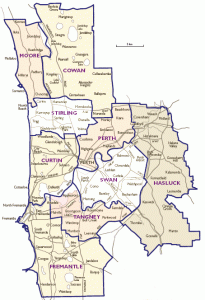
Source: Bing Photographs
The old Trades Hall, downstairs, Room 23, one cold night. I always remember Room 23 for being cold. State Executive was sitting for its highest of functions – the selection of a candidate. Nervous in front of my (mostly male) audience, who sat patiently listening on those cramped, uncomfortable benches, I bungled my speech. Urged on gently I muddled through. The goodwill expressed towards me that night, and the help, was fantastic.
The paper carried an article the next day. Not every day a woman was pre-selected – even for a hopeless seat like Curtin. The Personnel Manager at work liked me, had been my mentor even, but was worried when he called me in. Was it true? Was I a…LABOR CANDIDATE? The clientele the accounting firm might not like to think that their books were being looked at by a LABOR person. He was sorry, it was out of his hands…but there it was.
Unlike the women with whom I had shared the vicissitudes of labouring in the laundry (see part 1, Unfinished Business) fate came to my aid, in an unusual way. The accounting firm had recently amalgamated. One of the new partners was Ransley Victor Garland. So? So he was the sitting member I was to run against. I think he was convinced that he was obviously the ALP target in endorsing the firm’s only ledger machinist (a Woman!) against him. He was not impressed. But could he sack me? Garland senior stepped into the fray. He was a little sprite with a twinkle in his eye who enjoyed the situation immensely. It would be dicey to sack me. Despite any wishes to the contrary I stayed until I was ready to leave.
There were some other, more monumental, victories in the early seventies. One that stands out is the Aboriginal Tent Embassy demanding rights outside State and National Parliament Houses.
Unlike their increased public presence, my campaign was low key. In Curtin we knew that we would win one third of the vote. We wouldn’t waste money. But I doorknocked [2] and found a tremendous number of women I spoke to liked the idea of a woman candidate. Peter Dowding, later Premier, insisted that we needed signs. Signs, we pointed out, cost money. Peter not only printed some and paid, he put them all up by himself – no small effort.
I was part of a team, a huge team. We roamed the marginals during the months up to the election, pamphleting ourselves silly. Folding pamphlets became an all-night job at times. Nobody can fold like I can! There doesn’t seem to be a job in politics that doesn’t demand hours of bloody folding! The records show that I held a debate with Vic Garland – I have no recollection. Only more mundane memories have stuck – tossing Labor Voice out of a car, ‘daily papers’ style early in the morning; slogging around pamphleteering in the evening when the spiders were out. I learned to value real people, grand and small, who gave unstintingly of time, money and help to the campaign.
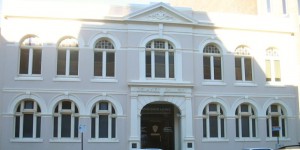
Source: By Moodyne – Own Work, Public Domain
For me, standing up and speaking with Gough Whitlam was the absolute highlight of the Curtin Campaign. A mature age student with no money, I thought nothing of having to hike several kilometres to the meeting in my only decent dress (again too hot for the weather). Hoofing it in my only pair of heels meant my feet were blistered long before I got to that lorry-cum-stage, parked outside the Commonwealth Bank in Forrest Place. A nervous endorsed first timer faced the crowd, speaking of how we needed social change. The receptive crowd took my feelings, not my awful speech and yelled ‘good on yer, luv’ as I was rescued by the man at my side, the redoubtable and silver tongued Gough.
Other times, years later, I have been out with Gough Whitlam and women have rushed up to thank him for his changes to higher education that have changed their lives.
No wonder we toast Gough each year!
[1] See, for example, Meredith Burgmann (ed.) (2014) Dirty Secrets: Our ASIO Files Australia:New South.
[2] In Britain this is referred to as canvassing, but for ‘door knocking’ think wide frontages, large blocks and heat.
Sue Neacy lives near Fremantle, Western Australia and writes detective novels featuring Peggy d’Sousa, the earlier two set in Western Australia. Her first, Murder in Northbridge (Artemis, Melbourne) is located far distant from the University of Western Australia where she studied while taking ‘holiday’ jobs such as that described in Unfinished Business. The glamourous environment featured in For Old Times Sake (Author’s Choice Press, USA) is a far cry from Sue’s political activities described in More Unfinished Business. Mean Streets Echo (iUniverse Inc) is set in America. The last two books are available on Amazon and eBook. She is currently writing another Peggy novel and has just completed an historical novel, Mark of Borgia.
